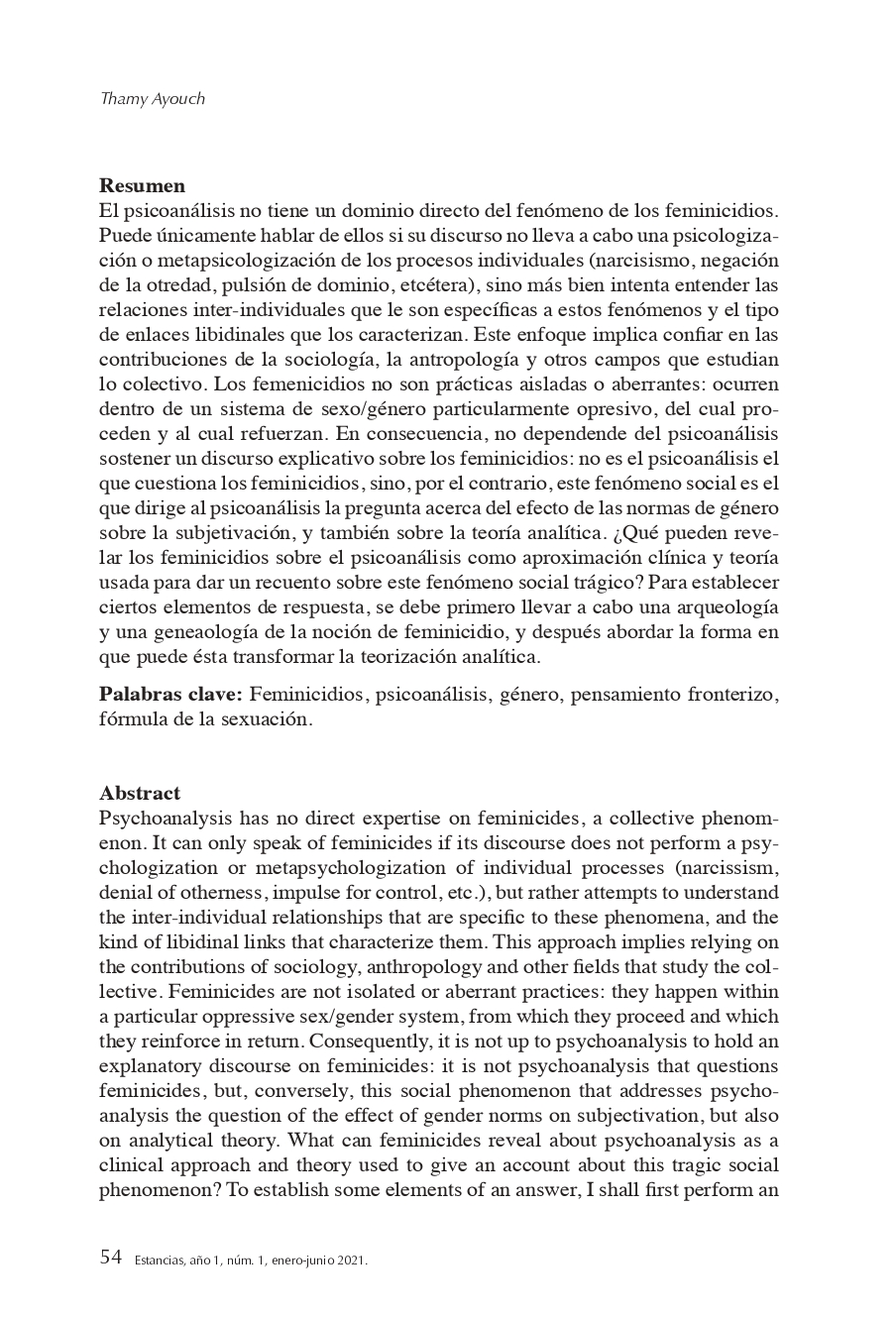Feminicides and Psychoanalysis. From thePolitical to the Subjective
Main Article Content
Abstract
Psychoanalysis has no direct expertise on feminicides, a collective phenomenon. It can only speak of feminicides if its discourse does not perform a psychologization or metapsychologization of individual processes (narcissism, denial of otherness, impulse for control, etc.), but rather attempts to understand the inter-individual relationships that are specific to these phenomena, and the kind of libidinal links that characterize them. This approach implies relying on the contributions of sociology, anthropology and other fields that study the collective. Feminicides are not isolated or aberrant practices: they happen within a particular oppressive sex/gender system, from which they proceed and which they reinforce in return. Consequently, it is not up to psychoanalysis to hold an explanatory discourse on feminicides: it is not psychoanalysis that questions feminicides, but, conversely, this social phenomenon that addresses psychoanalysis the question of the effect of gender norms on subjectivation, but also on analytical theory. What can feminicides reveal about psychoanalysis as a clinical approach and theory used to give an account about this tragic social phenomenon? To establish some elements of an answer, I shall first perform an archaeology and genealogy of the notion of feminicide, and then tackle the way it may transform analytical theorization.
Article Details
How to Cite
Feminicides and Psychoanalysis. From thePolitical to the Subjective. (2021). Estancias, 1(1), 53-72. https://revistas.uaq.mx/index.php/estancias/article/view/322
Issue
Section
Artículos

This work is licensed under a Creative Commons Attribution-NonCommercial 4.0 International License.
How to Cite
Feminicides and Psychoanalysis. From thePolitical to the Subjective. (2021). Estancias, 1(1), 53-72. https://revistas.uaq.mx/index.php/estancias/article/view/322
